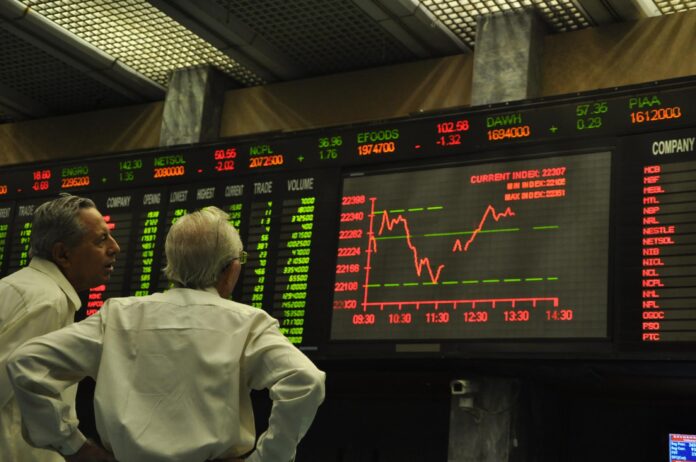Escalating tensions between Pakistan and Iran negatively impacted investor confidence at the Pakistan Stock Exchange (PSX), leading to a bearish trend during the intraday trade.
The benchmark KSE-100 index declined by 364.93 points to settle at 63,202.40 points or 0.57% as compared to the previous close.
The index opened the trading session at 63,579.96 but at 10:00 am it plummeted to more than 1000 points to the 62,528.55 level. Later on, it recovered to some extent but closed in the red zone.
Market analysts attribute the selling pressure to escalating tensions between Pakistan and Iran.
This situation was further exacerbated by a statement from the Ministry of Foreign Affairs (MOFA) that Pakistan retaliated against Iran in a series of coordinated precision strikes targeting terrorist hideouts, an operation named ‘Marg Bar Sarmachar’. The ministry reported that numerous terrorists were eliminated in this intelligence-based operation.
This aggressive move by Pakistan was in retaliation to a prior strike by Iran on Pakistani soil, which, according to Pakistan, resulted in the death of two children and injuries to three girls.





Artık en sevdiğiniz filmi bozan tüm gereksiz reklamlara veda etme zamanı. En sevdiğiniz şovların ve dizilerin keyfini reklamsız çıkarmak için adblock chrome’u indirmeniz yeterli. Adblock olarak Chrome, her türlü reklamı engeller ve en iyi akış deneyimine sahip olmanızı sağlar.